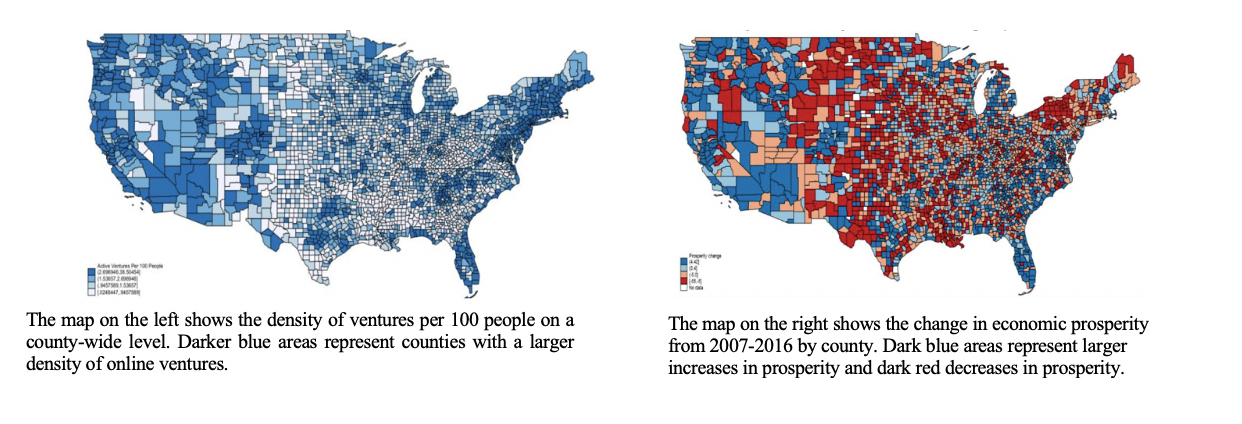With the world’s attention intently focused on economic indicators in the fallout of the COVID-19 pandemic, new research highlights the key role that small online businesses play in the economic growth of local communities. In collaboration with GoDaddy, a new study authored by researchers from the University of Iowa and Arizona State analyzed measures of local prosperity and economic opportunity in relation to a county’s number of online ventures. Specifically, the study examined the density by zip code of over 20 million actively-registered domain names across the U.S. and compared the results to an Economic Prosperity Index (“EPI”) comprised of factors like a county’s housing vacancy rate, poverty rate, and percent change in the number of jobs.
The researchers used the online ventures as a proxy for entrepreneurialism. GoDaddy estimated that approximately three-quarters of these “ventures” are business-related, and although most small online ventures remain side hustles, about one-fifth of the entrepreneurs surveyed said their web businesses are their main source of income. More than half said their web ventures generated some household income. The study found that each highly active venture adds $331 of growth to county median household income over a two-year period. This trend holds even after standardizing certain factors like education level, ethnicity, and geography.
This study implies potential policy solutions for alleviating the economic disparities between select groups of coastal cities that have seen an explosion in economic activity and many rural areas that have lagged behind. According to Karen Mossberger, one of the study’s lead authors and a professor at Arizona State, trying to lure a big tech company into a city by using tax breaks or other incentives might be misguided. A better solution for many communities should be tailored around building programs geared towards helping these tiny digital businesses thrive.

Small Online Businesses Spur Economic Growth in Unexpected Places